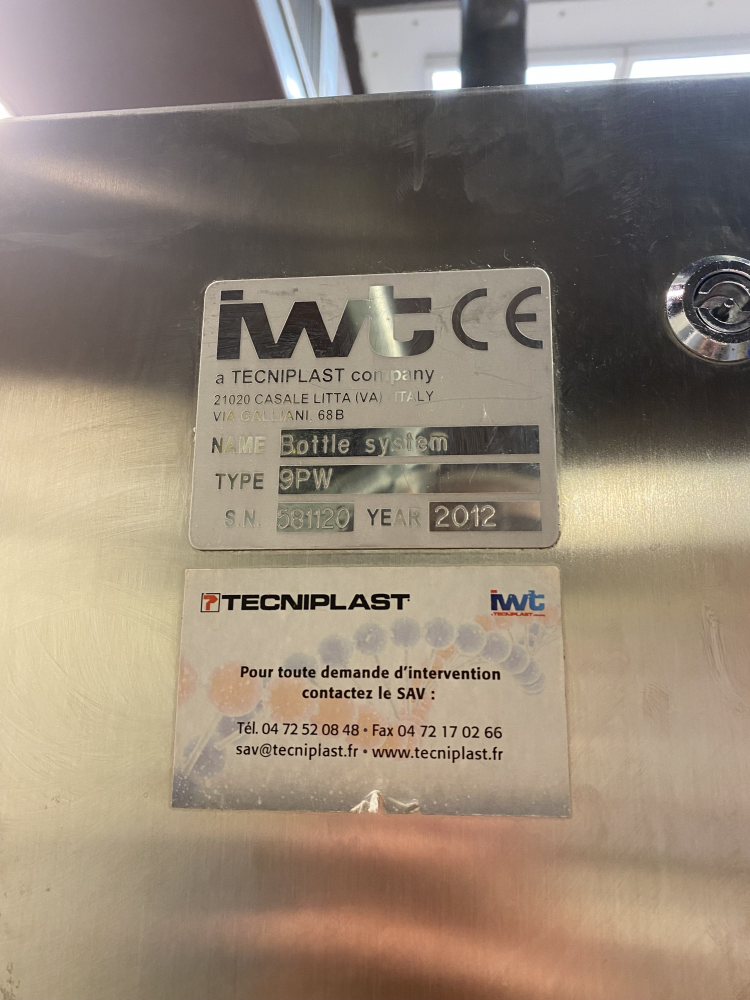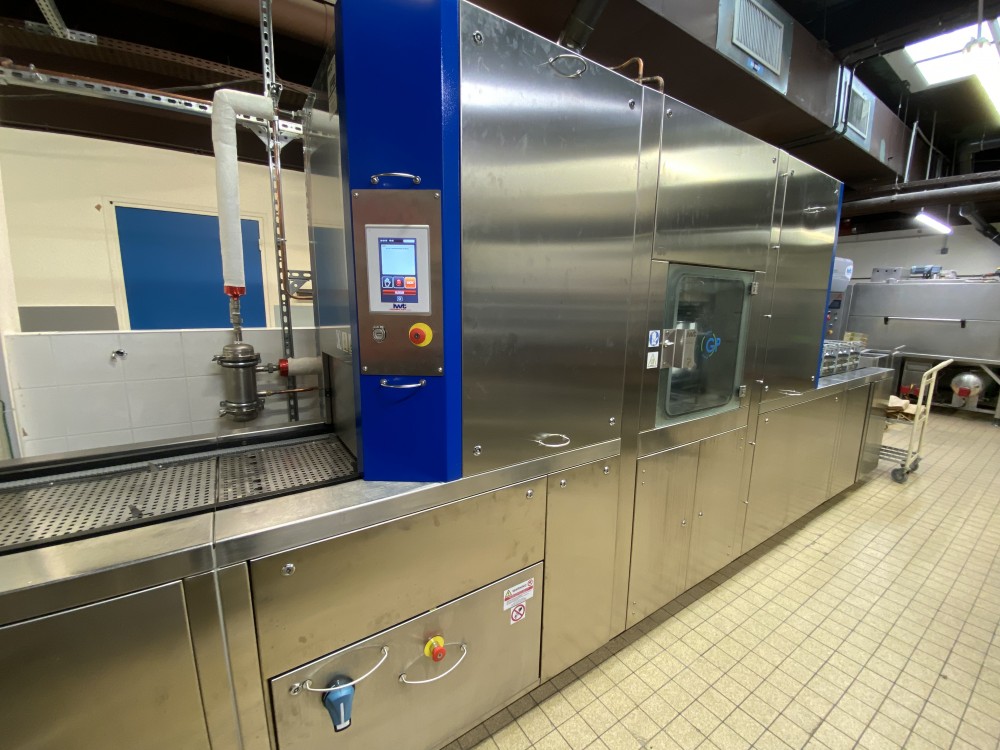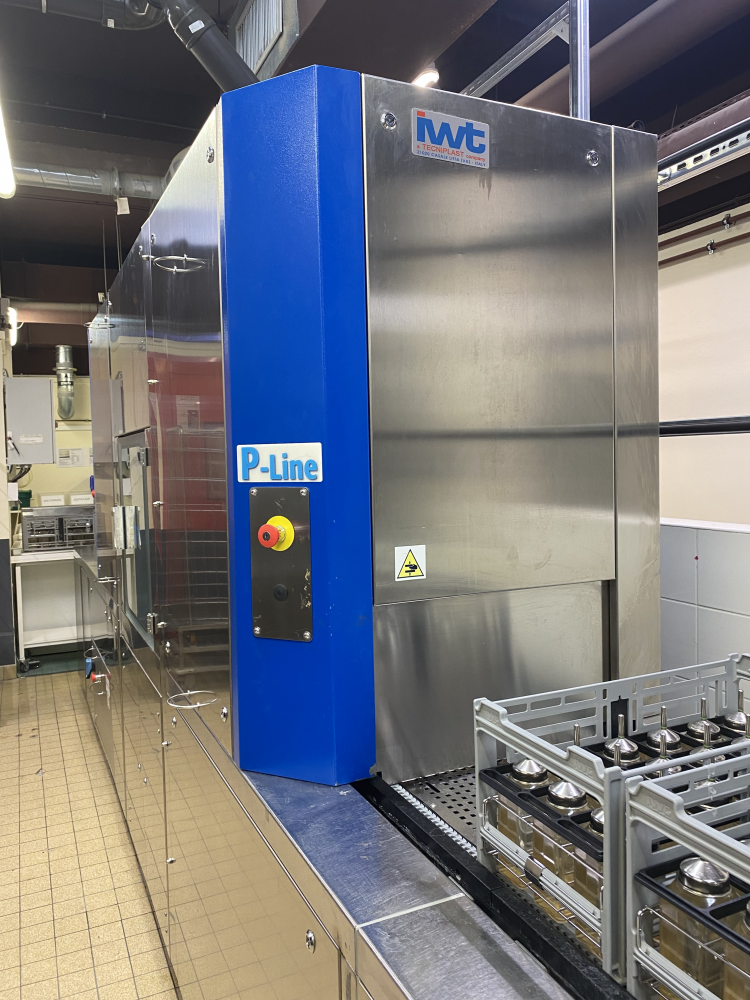
The current version of the Tecniplast website doesn't match your region. Please visit your local website to find information and offerings specific to your country.

The current version of the Tecniplast website doesn't match your region. Please visit your local website to find information and offerings specific to your country.

Installed in 2012, the P-Line at the Institut Pasteur of Paris was one of the first to be put into production worldwide and underwent every possible retrofit while on the front lines.
 After more than 150,000 cycles, three times the full counter rotation, the wear and tear had become evident, along with an increasing frequency of breakdowns.
After more than 150,000 cycles, three times the full counter rotation, the wear and tear had become evident, along with an increasing frequency of breakdowns.
It’s worth noting that before the arrival of this historic first P-Line, of which François RIMLINGER, the facility manager, knows the serial number by heart, decapping and washing were done manually.
The shift to automation nearly 15 years ago had already revolutionized daily operations for the staff!
Indeed, we’re talking about
“We knew the machine had more than fulfilled its role. But instead of replacing it, Tecniplast offered to rebuild it. This solution aligned perfectly with our increasingly ambitious sustainability policy,” explains François, Washing Area & Maintenance Manager in the facility.
The decision to rebuild rather than replace was based on several key factors: cost control, sustainability, reduced environmental impact, and the reliability of a proven piece of equipment.
But above all, operator ergonomics took priority and ultimately tipped the scale in favour of this option.
“That’s why it was essential to refurbish it to continue improving our operators’ daily lives. It was an evidence. This approach also reflects Tecniplast’s ability to extend the lifespan of its equipment while staying at the cutting edge of innovation,” emphasizes François.
The refurbished P-Line now benefits from a preventive maintenance contract with the manufacturer, including two visits per year. “The more preventive I have, the less corrective I need”, François summarizes, highlighting the importance of structured, rigorous maintenance carried out by the manufacturer itself.

On delivery day, the old machine was dismantled, and its components temporarily stored in the washing area, while the new elements of the rebuilt P-Line were gradually brought in through the crane shaft located at the back of the room.
During the first week, the boxes gradually disappeared and the new machine took shape. This initial logistics phase was the most complex to coordinate, but was perfectly managed by the teams.
The project continued over four weeks, during which the machine was dismantled, transported, and mostly rebuilt on-site. “Coordination with the Tecniplast teams was smooth, despite the shared use of the washing area. The logistics in the first week were the most challenging, but soon the project came together.”
The new P-Line features entirely new components, including the decapping and recapping towers, shipped directly from the factory in Italy. The old modules were sent to a metal recycler, demonstrating a fully assumed circular economy approach.
 The environmental impact is clear—waste reduction, lower energy consumption thanks to the use of municipal steam, and elimination of standalone generators. But the human impact is just as significant.
The environmental impact is clear—waste reduction, lower energy consumption thanks to the use of municipal steam, and elimination of standalone generators. But the human impact is just as significant.
Initially, this rebuild was intended to be the first step toward a complete overhaul of the bottle-washing logistics, with a gradual transition from stainless-steel to plastic baskets. However, the teams quickly noticed the practical advantages of the new method: easier handling, reduced physical strain, better washing flow organization, and above all, durability. Indeed, the plastic baskets are very strong and resistant to frequent use, without any risk of deformation. Given these obvious benefits, the decision was made to fully replace the bottle logistics with plastic baskets.
“When the machine is down, the teams have to do everything manually. This drastically increases the risk of musculoskeletal disorders (MSDs).” In fact, when the machine broke down, staff had to operate manually with repetitive movements. The role of a washing operator is already a high-risk position for MSDs, and it becomes even more so when you have to decap and recap 800 to 1,000 bottles per day. The P-Line exists to support the well-being of these operators.
Thanks to the rebuild, the entire chain is automated again: decapping, draining, washing, filling, and recapping. “Today, the operators have regained real comfort in their work. There’s a new energy in the team.”
The P-Line rebuild isn’t an exception: a 900GP was also refurbished in March 2025, and other projects are in the pipeline, such as the reconstruction of another washing machine with an H2O2 decon system. “This feedback is extremely positive. I would 100% recommend that other institutions consider this option. It checks all the boxes: efficiency, sustainability, and cost-effectiveness.”
The rebuilt P-Line is now ready for another decade of service at the heart of the Institut Pasteur’s animal facility. A successful project where performance, sustainability, and team well-being align perfectly—and a great example to follow for any institution looking to the future.